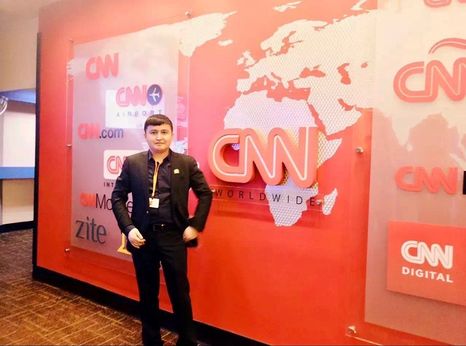Uyghur jailed for 15 years in secret trial

Ekpar Asat is a Uyghur entrepreneur and philanthropist dedicated to helping older people and children with disabilities. He founded a popular social media appthat featured news, history, literature, column, entertainment, music and legal updates. After Ekpar Asat went missing in April 2016, the app kept operation for a year until April 2017. His parents are members of the Chinese Communist Party and he participated in events organized by the Chinese authorities before he went missing.
The US Embassy in Beijing encouraged Ekpar Asat to apply for the State Department’s International Visitor Leadership Program (IVLP) after he met with Max Baucus, then the American ambassador to China, in Xinjiang in 2014, The IVLP is the US Department of State’s premier professional exchange programme in which current and emerging foreign leaders in a variety of fields experience the US first hand and build relationships with American counterparts.
The US State Department mentioned Ekpar Asat’s case in its 2019 human rights report on China. After a bipartisan group of US senators urged China to release Ekpar Asat, the Chinese Embassy in Washington, DC, responded by email in January 2020 with information about Ekpar Asat’s conviction and sentencing but without providing any further details.
Xinjiang is one of the most ethnically diverse regions in China. More than half of the region’s population of 22 million people belong to mostly Turkic and predominantly Muslim ethnic groups, including Uyghurs (around 11.3 million), Kazakhs (around 1.6 million) and other populations whose languages, cultures and ways of life vary distinctly from those of the Han who are the majority in “interior” China.
Media reports have illustrated the extent of new draconian security measures implemented since Chen Quanguo came into power as Xinjiang’s Party Secretary in 2016. In October 2016, there were numerous reports that authorities in the region had confiscated Uyghur passports in an attempt to further curtail their freedom of movement. In March 2017, the Xinjiang government enacted the “De-extremification Regulation” that identifies and prohibits a wide range of behaviours labelled “extremist”, such as “spreading extremist thought”, denigrating or refusing to watch public radio and TV programmes, wearing burkas, having an “abnormal” beard, resisting national policies, and publishing, downloading, storing, or reading articles, publications, or audio-visual materials containing “extremist content”. The regulation also set up a “responsibility system” for government cadres for “anti-extremism” work and established annual reviews of their performance.
It is estimated that up to a million Uyghurs, Kazakhs and other predominantly Muslim people have been held in the “transformation-through-education” centres. The Chinese authorities had denied the existence of such facilities until October 2018, when they began describing them as voluntary, free “vocational training” centres. They claim that the objective of this vocational training is to provide people with technical and vocational education to enable them to find jobs and become “useful” citizens. China’s explanation, however, contradicts reports of beatings, food deprivation and solitary confinement that have been collected from former detainees.
China has rejected calls from the international community, including Amnesty, to allow independent experts unrestricted access to Xinjiang. Instead, China has made efforts to silence criticism by inviting delegations from different countries to visit Xinjiang for carefully orchestrated and closely monitored tours.